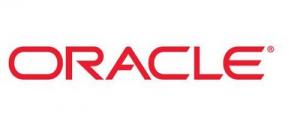Keeping track of the ultimate beneficiaries – who owns whom?
23.11.2017Company: bnt attorneys-at-law s.r.o.
Rather soon, as of 1 January 2018, an amendment to the Act on Public Registers of Legal Entities and Natural Persons takes effect, implementing yet another part of what is known as the 4th AML Directive into Czech law, namely, the mandatory keeping of records with respect to the particulars of the true owners (ultimate beneficiaries) of legal entities.
On 1 January 2018, an amendment to the Act on Public Registers of Legal Entities and Natural Persons comes into force, building upon a previous amendment to the Act on Certain Measures Against the Legitimization of Proceeds from Crime and the Financing of Terrorism (Anti-Money Laundering Act) and implementing into Czech law the mandatory keeping of records on individuals who are known as the "ultimate beneficiaries" of legal entities entered in the Commercial Register and of trust funds.
Pursuant to the Anti-Money Laundering Act, the ultimate beneficiary is that natural person who legally or factually exercises (directly or indirectly) decisive influence in a legal entity, a trust fund, or another grouping without separate legal personhood. The AML Act also stipulates certain refutable assumptions as to the identity of the ultimate beneficiaries of such entities. Going forward, ultimate beneficiaries must be kept track of in a separate list of true owners. The data entered there includes their names, birth dates, place of residence, and citizenships, but also e.g. information on voting shares (in the case of direct participation in the legal entity) or on the share in funds earmarked for distribution (if the individual on record is among the beneficiaries of such payouts), and on other facts and circumstances which cause the individual on record to have the status of the ultimate beneficiary. The register court will enter this information on the ultimate beneficiary into the list of true owners based upon a motion filed by someone who is otherwise entitled to file petitions for entries into the Commercial Register; the register court will do so within five business days, and without issuing a separate formal decision. Notaries public may also effect entries in the list of true owners. The fee for such entry is CZK 1,000.
The list of true owners qualifies as (what is known as) a public administration information system, and as such is kept electronically by the competent register court. However, the list is not a public register, and the information on the ultimate beneficiary is not revealed on extracts from the Commercial Register either. In other words, the general public has no access to this data, which is limited to a strictly defined circle of persons and institutions, among them courts, law enforcement, the revenue service, and the Czech National Bank.
If a registered legal entity fails to put its ultimate beneficiary on record within the statutory time period, it will be reminded to do so by the register court, which will stipulate a supplementary period for compliance. Failure to comply even within this additional respite means that the court may, upon a request by the register court (or by another person who can prove their legal interest in the matter), disband the legal entity and order its liquidation.
In closing, we ought to mention that legal entities, as well as the managers of trust funds (and other persons in a similar position) will have to keep (and regularly update) current information to the extent that this is needed for ascertaining and verifying the identity of "their" ultimate beneficiary, including information as to the facts which cause that individual to be in the position of the ultimate beneficiary (or which otherwise justify viewing that individual as the ultimate beneficiary). This information must be archived for as long as the relevant individual is the ultimate beneficiary, and for at least 10 years thereafter.
Source: Act No. 253/2008 Coll., on Certain Measures Against the Legitimization of Proceeds from Crime and the Financing of Terrorism, as amended Act No. 304/2013 Coll., on Public Registers of Legal Entities and Natural Persons, in the version coming into force on 1 January 2018
AUTHOR
Tags: Law |






